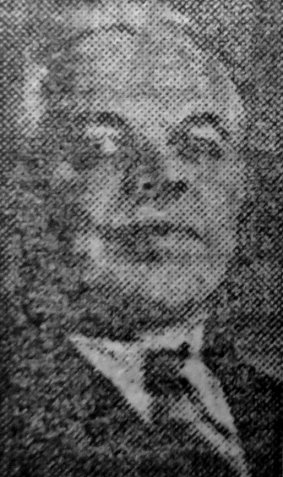South Yorkshire Times, January 5th 1952
Obituary – Mr. H. Wrigley
“Times” Circulation Representative

Newagents and wholesale distributors in a wide area of South Yorkshire and North Derbyshire will join with his former colleagues in all departments of the “South Yorkshire Times and Express” Series in expcessing sympathy with the familyof Mr. Harold Wrigley, (68) former circulation representative of these newspapers, who died in a Chelsea hospital on Christ mas Eve.
Mr. Wrigley was knocked down by a cyclist near Weybridge (Surrey) where he had latterly resided and received a fractured skull. A verdict of “Accidental Death” was returned at the inquest.
Mr. Wrigley retired in 146 to live at Kay (Lincs) and still he could return to this office and render assistance in the circulation department. His last spell of duty in this respect continued right up to the time immediately before Christmas holidays.
Cremation took place at Woking Crematorium on Tuesday and the ashes are to be brought to Mexborough.
A native of Mexborough, Mr. Wriglev began work at the ‘Times” office as a boy before the South African war and when he retired after nearly 50 years’ service with the firm he had had the longest record of service of any employee on the staff
First In In 1914
On the outbreak of the 1914-18 War he was the first of the company’s employees to volunteer—he was in the colours by September 18th1914—and served throughout the war and on his return took charge of the publishing department of the then “Mexhorough and Swinton Times.” Later, he was appointed Circulation Representative. He was an extremely diligent servant and held in great respect by the Directors his colleagues and newsagents.
Mr. Wrigley had a highly creditable war record. He saw considerable overseas service and four years was attached to the 7th Cavalry Brigade Headquarters and attained the rank of sergeant. He was awarded the Military Medal for devotion to duty while temporarily attached to a combination of cavalry units formed to fight rearguard actions during the German offensive of March, 1918.
In his youth he was a pioneer in the development of the Boy Scout movement in the Mexborough and Swinton Area—he helped to form the Swinton Church troop and subsequently was Scoutmaster of the 1st Mexborough Troop—and later he was an enthusiastic philatelist.